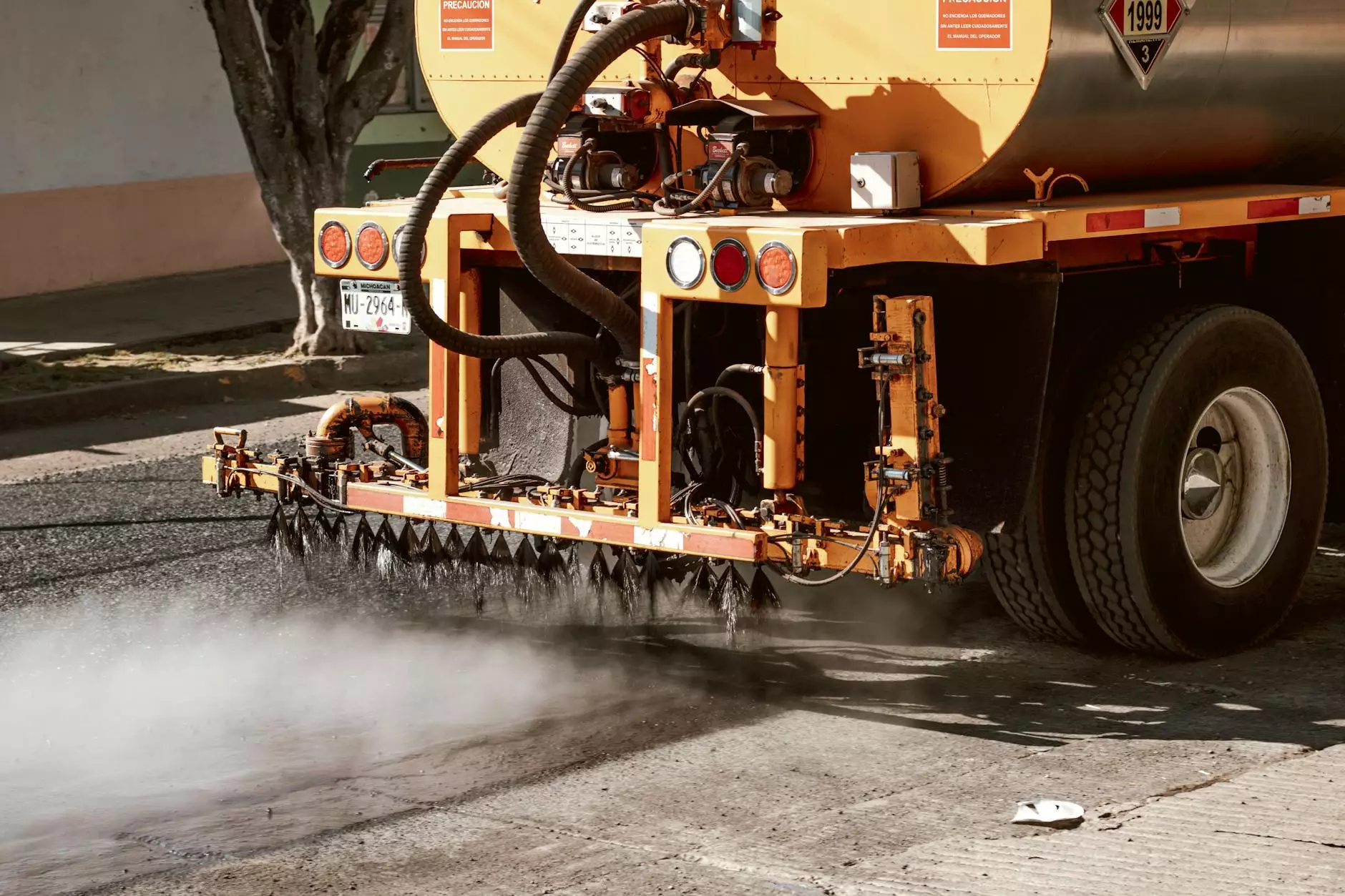The Vital Role of the Crankshaft in an Engine

The crankshaft in an engine serves as a central component transforming linear motion into rotational motion, facilitating the engine's operation. It is a critical part found in various types of engines, especially in diesel engines. This article delves deep into the functionality, types, and importance of the crankshaft, while also offering insights on selecting high-quality crankshafts and spare parts for enhanced engine performance.
Understanding the Crankshaft
The crankshaft is a fundamental component of internal combustion engines. Its primary role is to convert the linear motion of the pistons into rotational motion, powering the vehicle and various machinery. Here’s how it works:
- The engine's pistons move up and down due to combustion within the cylinders.
- The crankshaft, connected to the pistons via connecting rods, rotates as the pistons move.
- This rotational motion is what ultimately turns the drive shaft, powering the wheels or other machinery.
Types of Crankshafts
There are several types of crankshafts used in engines, each designed for specific applications:
- Cast Iron Crankshafts: Commonly used in standard production engines due to their durability and strength.
- Forged Steel Crankshafts: Known for their superior strength and resistance to cracking; often found in performance engines.
- Billet Crankshafts: Made from a solid piece of steel, offering the highest strength; ideal for high-performance racing engines.
The Importance of the Crankshaft
The crankshaft in an engine is absolutely vital for several reasons:
1. Mechanical Performance
A well-designed crankshaft significantly enhances the engine's mechanical performance, boosting horsepower and torque delivery. This is particularly crucial in diesel engines, where torque is a critical measure of performance.
2. Smooth Operation
With the proper balance and design, crankshafts ensure smooth engine operation. Any imbalance can lead to vibrations, reducing engine efficiency and potentially causing damage.
3. Durability
A quality crankshaft is designed to withstand the significant stresses imposed during operation. Its longevity directly impacts the overall lifespan of the engine.
Signs of a Failing Crankshaft
Understanding the signs of a failing crankshaft is crucial for engine maintenance. Look out for the following symptoms:
- Unusual Noises: Grinding or knocking sounds may indicate damage or wear.
- Vibrations: Excessive vibrations while the engine is running can suggest an imbalance.
- Oil Leaks: If you notice oil leaking from the rear main seal, this could signal crankshaft issues.
- Decreased Engine Performance: A noticeable drop in power can be attributed to crankshaft failure.
Choosing Quality Crankshaft Spare Parts
When it comes to replacing or upgrading the crankshaft in an engine, choosing the right spare parts is essential for maintaining performance and reliability. Here are several considerations:
1. OEM vs. Aftermarket Parts
Opt for OEM (Original Equipment Manufacturer) parts whenever possible. While aftermarket parts can sometimes be cheaper, they may not meet the same quality standards, potentially resulting in decreased engine performance or premature failure.
2. Material Quality
Assess the materials used in manufacturing the crankshaft. High-quality steel or iron with precise engineering enhances strength and durability, which is particularly essential in high-stress applications.
3. Manufacturer Reputation
Choose spare parts from reputable manufacturers or suppliers, such as client-diesel.com. Quality assurance and customer service can make a significant difference in your purchasing decision.
The Role of the Crankshaft in Diesel Engines
Diesel engines are particularly reliant on high-quality crankshafts due to their distinct operating characteristics:
1. Torque Generation
Diesel engines generate substantial torque at lower RPMs, putting extra stress on the crankshaft. This necessitates a robust design capable of handling these forces effectively.
2. Biased Load Distribution
Unlike gasoline engines, diesel engines produce more consistent power strokes, requiring crankshafts with excellent load distribution properties to mitigate wear and tear.
3. Vibrational Stability
Due to the operation of diesel engines, crankshafts must be designed not only to provide performance but also to ensure vibrational stability. This minimizes the risk of other components being subjected to excessive stress.
Crankshaft Maintenance Tips
To ensure a long service life for the crankshaft in an engine, regular maintenance is crucial. Here are some maintenance tips:
- Regular Oil Changes: Keeping the engine oil clean and topped up reduces friction and wear on the crankshaft.
- Monitoring Engine Temperature: Overheating can lead to severe damage; ensure your cooling system is functioning correctly.
- Routine Inspections: Regularly check for signs of wear, imbalance, and leaks.
- Using Quality Fuels: Low-quality diesel can cause residue build-up, affecting performance.
Conclusion
In conclusion, the crankshaft in an engine is an indispensable component that plays a crucial role in transforming the energy generated from fuel into motion. Understanding its operation, choosing quality spare parts, and maintaining it diligently can enhance engine performance and longevity. For high-quality diesel engine parts, including crankshafts, visiting client-diesel.com can ensure you have access to top-notch components for your engine needs. Proper attention to the crankshaft will lead to a smoother, more efficient, and durable engine, keeping your vehicle or machinery running at its best.
Further Reading
To deepen your understanding of diesel engines and their components, consider exploring articles on:
- Diesel Engine Parts
- Spare Parts Suppliers
- Crankshaft Maintenance Best Practices









